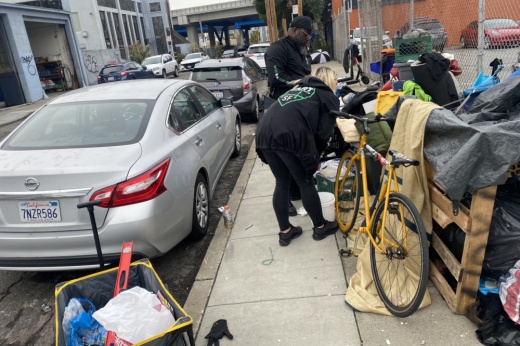The Downtown Austin Alliance will launch the Homelessness Engagement Assistance Response Team, or HEART program, from Feb. 1 through July 31. The DAA will be managing the program alongside nonprofit Urban Alchemy, which runs the Austin Resource Center for the Homeless and the Eighth Street shelter for women and transgender clients.
The framework
The DAA will deploy practitioners with lived experience—people who formerly experienced homelessness, incarceration, substance abuse disorder or mental illness—to do street outreach downtown Monday-Friday from 9:30 a.m. to 6 p.m.
The goal of the program is for practitioners to engage with people experiencing homelessness and help connect them with loved ones, housing, mental health support and other services, said Bill Brice, DAA senior vice president, investor relations.
“We don't have people that are actively on the streets, engaging with folks trying to understand their needs, trying to take a caring and compassionate approach to understanding what their needs are and getting them help with services,” Brice said. “So that's what this program is really about.”
Practitioners will provide monthly reports to the DAA on how many conflicts they de-escalated, how many self-initiated contacts they made, and how many people they helped enroll in a shelter and receive mental health treatment—data Brice said will help improve the city’s ability to support unsheltered people downtown.
The program will operate between Congress Avenue and Brazos Street from Fourth Street to Ninth Street; between Fifth Street and Seventh Street from Congress Avenue to the I-35 southbound frontage road; and in the 200-300 block of Fourth Street—areas with a high concentration of unhoused residents, according to the DAA’s most recent count in October.
What they’re saying
The program could relieve Austin Police Department and Austin-Travis County Emergency Medical Services personnel from responding to nonemergency calls downtown, as those departments have dealt with short staffing and limited resources, Brice said.
The HEART program addresses nonemergency issues related to homelessness downtown with a “non-uniformed response,” he said.
“By having people who are actively engaging people on the street, in a sort of peer to peer, passionate, sensitive way, that will reduce the number of 911 calls, that will reduce the number of people that end up in a crisis situation,” Brice said.





